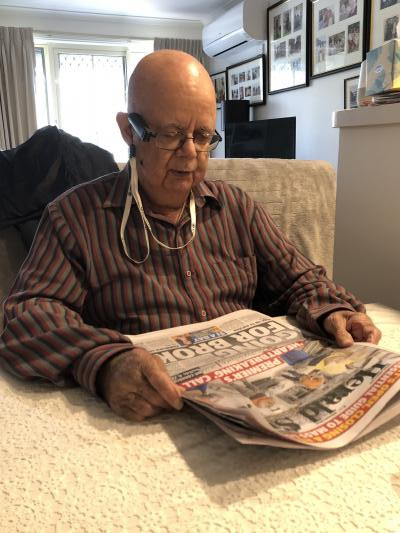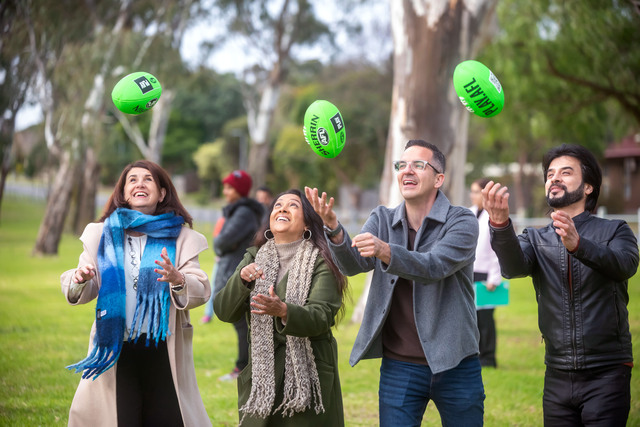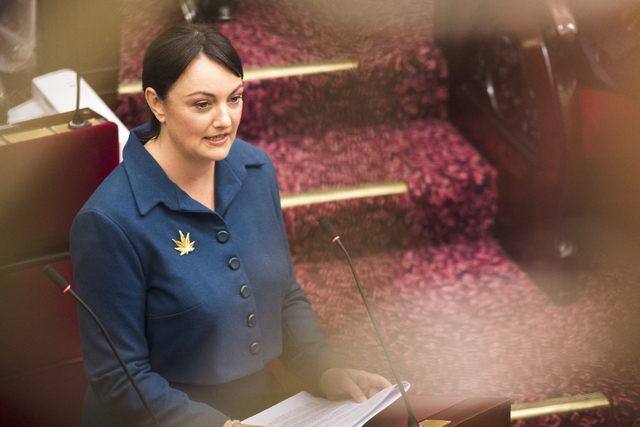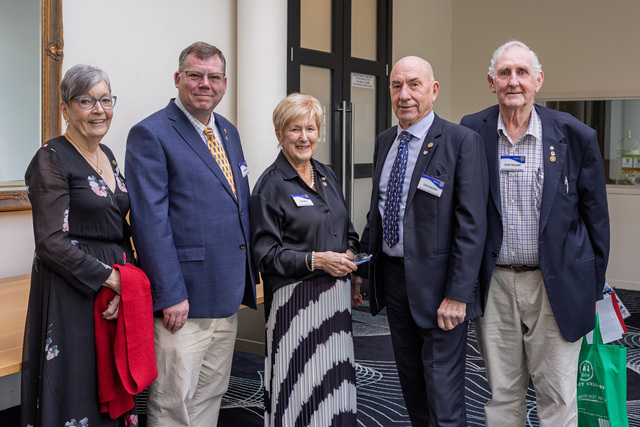Challenges are nothing new for Twanny Farrugia.
But the Covid-19 lockdown presents something “really frightening” to the 66-year-old Springvale transplant survivor.
“I’m vulnerable due to my health and my age, but I’m very lucky to be living here in Lexington Retirement Village.
“It’s a beautiful place to go for a walk in the gardens.
“I’m living in my own home so I don’t consider it too bad.”
Legally blind, Mr Farrugia is adept with assistive technology. It helps him connect with friends by video and social media.
But technology also fosters his highly-valued independence, and opens up the world of books.
A remarkable gadget is an OrCam MyEye 2.0 device that reads text into speech.
It allows Mr Farrugia who just sees “blobs and shapes” to enjoy action blockbuster novellists such as Matthew Reilly and Tom Clancy and ballad poets such as ‘Banjo’ Paterson.
Mr Farrugia rates the device as 80 per cent effective. It doesn’t properly read italics or scan tables of data, but he manages to extrapolate the gaps.
After all, it’s 80 per cent effectiveness that he didn’t have before, Mr Farrugia says.
“It’s the joy of having a book in your hand again.
“I like fiction and more fiction. And I have the time now I have retired.
“When they retire, people say they want to go on a cruise. I wanted time to sit down and have a cup of tea. And I’m achieving that beautifully.”
The device, which attaches to his glasses, also recognizes up to 120 different faces, money denominations, bar codes and colours.
Mr Farrugia looks forward to future versions, which are said to be able to recognise objects such as chairs and doors
“I’m lucky I’m not scared of technology. I call them my toys.”
On the other end of the technology scale is his companion and Guide puppy, Annabelle.
“You can’t get depressed in isolation with a puppy. She’s so silly, she keeps me entertained.”
Mr Farrugia felt more isolated when he spent time in hospital quarantine rooms in the 1970s.
He underwent a kidney transplant in 1971, and is now Australia’s second-longest surviving kidney transplant survivor.
He has since endured several chronic health conditions as well as open heart surgery.
“We do live in a ‘lucky country’,” Mr Farrugia said.
“If you’re going to get sick, get sick in Australia.
“If it wasn’t for NDIS funding, I’d be in a nursing home or a group home.”







